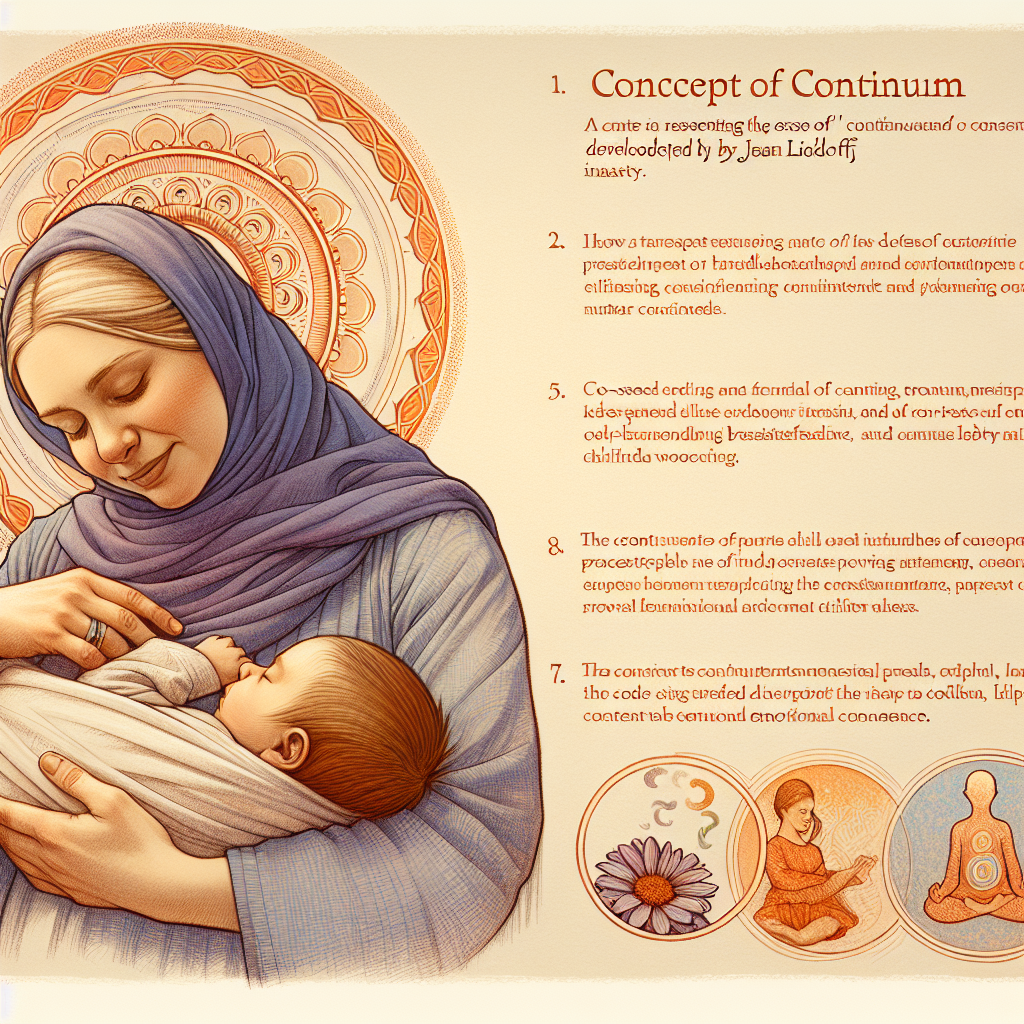Child Development: A Complete Guide to the Essential Stages
Introduction
As a parent, every stage of your child's development is a reason to be happy and can generate a lot of questions. You want to know how to support his growth and help him achieve happiness as an adult. One of the most important theories in this regard is the Continuum Concept, which promotes a healthy and balanced development of the little ones. This article will give you a complete guide to the essential stages in child development and how the Continuum Concept can be a trusted partner in this fascinating journey.
Pre-Natal Stage and Birth
To understand how the Continuum Concept can help the baby achieve happiness as an adult, we have to start with the beginning - the pre-natal stage and birth. Yes, even before it is born, your baby begins to develop in one of the most crucial environments – the mother's womb. It is essential to ensure a calm and healthy environment for the fetus, maintain a balanced diet and avoid stress. Birth is also a key stage in the Continuum Concept, where babies benefit most from a natural birth at their own pace, giving them the right start to life.
The first months of life
In the first months of life, constant contact with parents is fundamental. The practice of babywearing and breastfeeding on demand are essential in the Continuum Concept, as they meet the physiological and emotional needs of the child. The baby feels loved, safe and connected to its parent, which contributes to the development of a secure attachment.
Transition from Baby to Toddler
It is a stage marked by exploration and discovery. Your toddler is like a curious little explorer of the world around him. The Continuum concept suggests that it is vital to provide space for safe exploration, respond positively to their curiosity and support them in their attempts to be independent. Thus, the child learns to trust his own abilities.
Preschool period
As your child grows and moves into preschool, continued support is needed in exploring independence and learning through play. The Continuum concept supports the idea that play is the most natural form of learning for children and contributes to the development of cognitive, language and social skills.
School Stage
Upon entering the educational system, the Continuum Concept highlights the importance of respecting your child's individual learning pace. Not all children learn the same, and parents and educators need to be sensitive to these differences in order to create an encouraging and supportive environment.
Adolescence
Adolescence can be a tumultuous time, but the Continuum Concept offers resilience during this transitional period. Rejecting excessive social pressures and unrealistic expectations, understanding and supporting them in identifying and following their own passions are essential to the development of teenagers into happy and fulfilled adults.
Conclusion
In conclusion, understanding and applying the Continuum Concept in child development provides a solid foundation for achieving happiness in adulthood. It's about respecting your child's natural needs at every stage, being present and responding with love and support to their growth. Parents who follow these principles not only help their children achieve happiness as adults, but help create a world where people are connected, balanced, and truly committed to the well-being of others. So, follow the Continuum Concept and you'll be walking with your little one on the path to success and happiness as an adult.














































































































































